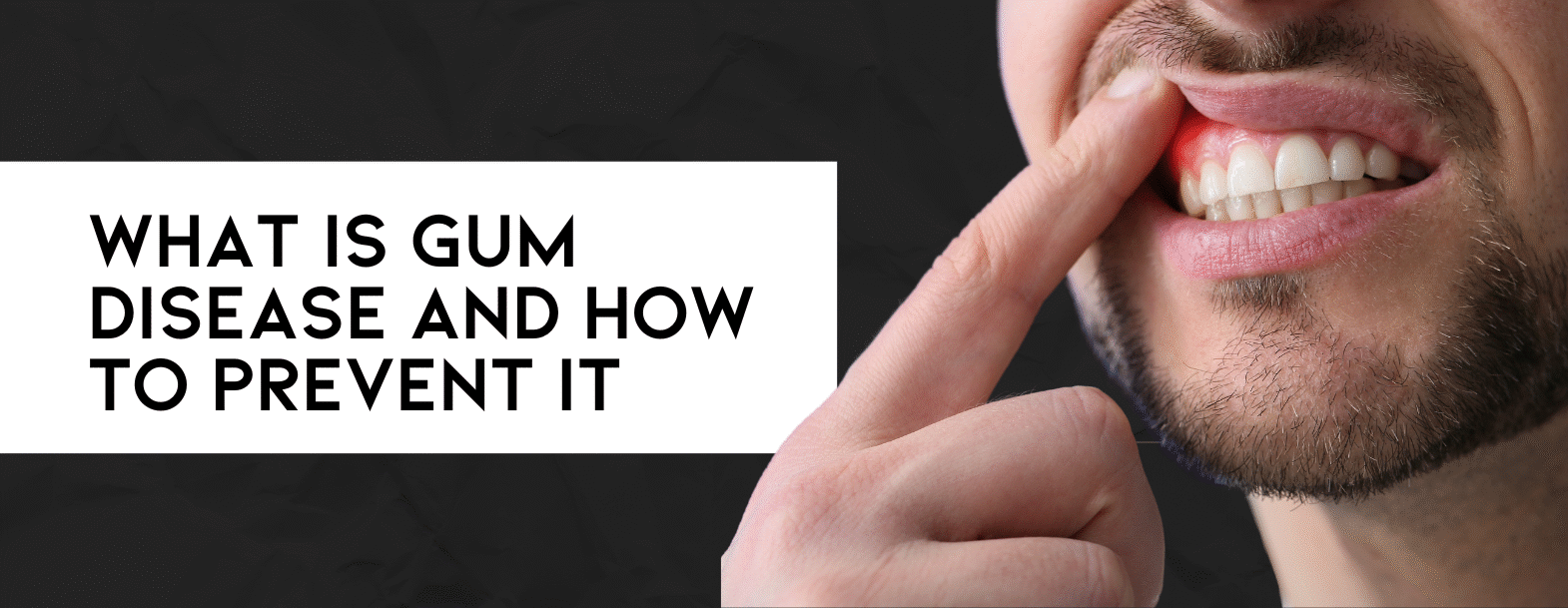Read our blog on "What is gum disease and how to prevent it" from the team at Abbey Mead Dental & Implant Clinic.

Gum disease, a prevalent oral health issue, encompasses various conditions characterized by inflammation, soreness, or infection around the tissues supporting the teeth. Among these, gingivitis and periodontitis are the most common and can lead to serious dental problems if left untreated.
It’s essential to recognize the prevalence of gum disease, with statistics indicating that approximately 95% of adults will experience gingivitis at some point in their lives. While this statistic might seem alarming, the good news is that gingivitis is reversible with the adoption of proper oral hygiene practices.
The development of gum disease is primarily attributed to bacterial plaque build-up on the teeth and gums. This sticky film harbours bacteria that, if not effectively removed through regular brushing and flossing, can lead to gum irritation, inflammation, and bleeding. If left unchecked, plaque can harden into tartar, further exacerbating the condition and paving the way for periodontitis.
Identifying the early signs of gum disease is crucial for timely intervention. Symptoms may include red, swollen, and tender gums, bleeding during brushing or flossing, persistent bad breath, and a lingering unpleasant taste in the mouth. Ignoring these symptoms can lead to further complications and potential tooth loss.
If you suspect you may have gum disease, it’s imperative to take proactive steps by scheduling a comprehensive dental evaluation. During this examination, your dentist will assess the health of your gums, possibly utilizing X-rays to detect any underlying bone loss, and recommend an appropriate treatment plan tailored to your specific needs.
Treatment for gum disease varies depending on its severity. For mild cases of gingivitis, professional dental cleanings coupled with improved oral hygiene practices may suffice. However, more advanced cases, such as periodontitis, may require specialized intervention from a dental hygienist or periodontist. Treatment goals typically focus on reducing inflammation, eliminating plaque and tartar build-up, and preventing further progression of the disease.
After undergoing treatment for gum disease, diligent post-treatment care is essential to maintain oral health and prevent recurrence. This includes adhering to a strict oral hygiene regimen, attending regular dental check-ups, and seeking prompt attention for any signs of relapse or complications.
Preventing gum disease involves adopting a comprehensive approach to oral hygiene and overall health. Daily plaque removal through thorough brushing, flossing, and the use of antimicrobial mouthwashes is paramount. Additionally, lifestyle modifications such as smoking cessation, proper management of chronic conditions like diabetes, and reducing stress can significantly reduce the risk of developing gum disease.
Certain individuals may be more predisposed to gum disease due to genetic factors, lifestyle choices, or underlying medical conditions. Smoking, for example, not only increases plaque accumulation but also impairs gum healing, making smokers more susceptible to gum disease. Similarly, conditions such as diabetes can exacerbate the inflammatory response to plaque, further escalating the risk of periodontal complications.
If you’re concerned about gum disease or experiencing symptoms suggestive of the condition, don’t hesitate to seek professional guidance from a trusted dental provider.
Dr Vivek Giddani – BDS, Pg DipDCSc (U-Lon), LDSRCS (Eng), MFDSRCS (Ed), MCGDent, Pg DipPerio (U-Plym) GDC: 185505 has a special interest in Periodontology (Gum Disease) and is trusted and used by referring dentists across Devon to treat advance dental cases.
Vivek also works at our other practice, Larkham House Dental Practice, in Plymouth.
Back to Blog